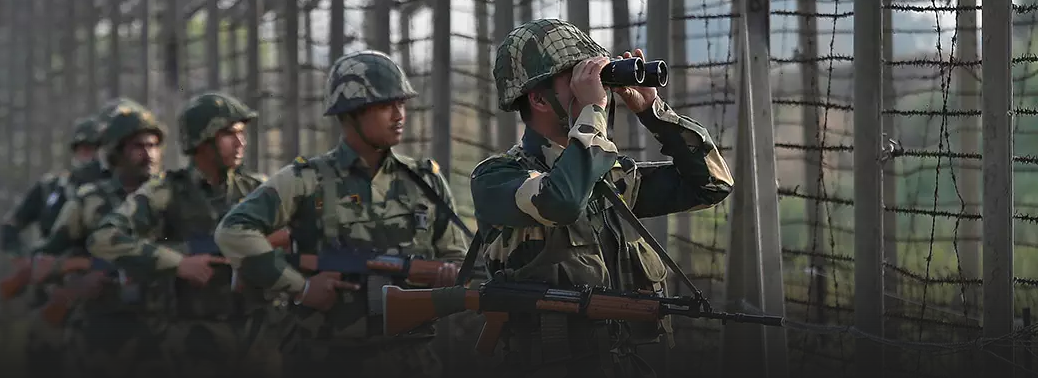SCO offers ‘mediation’ in India-Pak. Talks
22, Mar 2019

Prelims level : International Event in India’s Concern
Mains level : Bilateral Relation - GS - II
The eight-nation Shanghai Cooperation Organisation (SCO) offered to smoothen a bilateral dialogue between India and Pakistan so that the two countries can resolve their differences, following last month’s terror attack in Kashmir.
Shanghai Cooperation Organisation
- It is a Eurasian political, economic, and military organisation
- Founded in 2001 in Shanghai
- 8 members:
- ✓ China
- ✓ Kazakhstan
- ✓ Kyrgyzstan
- ✓ Russia
- ✓ Tajikistan
- ✓ Uzbekistan
- ✓ India and
- ✓ Pakistan
- SCO evolved from Shanghai Five (All above minus Uzbekistan)
- On July 10, 2015, the SCO decided to admit India and Pakistan as full members, and they joined as full members in 2017.
- Main activities: cooperation on security, military activities, and economic and cultural cooperation. Member countries are rich in energy resources (both fossil fuels and uranium)
- Members represent over 40% of humanity and nearly 20% of the global GDP.
- HQ: Beijing, China
SCO-India: Relations
- What started off as the “Shanghai 5” in 1996 for security and border peace between Kazakhstan, Kyrgyzstan, China, Russia and Tajikistan has metamorphosed into the Shanghai Cooperation Organization (SCO), which today has an ambitious regional and global vision, coupled with a strong economic mandate.
- The expansion of SCO last year to include India and Pakistan now makes this a powerful and strategic regional grouping, accounting for 40% of the world’s population, almost 20% of its gross domestic product (GDP) and 22% of the world’s land mass.
SCO Membership:
- For India, membership of this grouping will strengthen its relations with Central Asian republics and provide a new opportunity to pursue the “Connect Central Asian Policy”.
- The SCO would also be a new channel to enhance bilateral ties with China and Russia in addition to robust engagement through Brics (Brazil, Russia, India, China and South Africa) and bilateral mechanisms.
- In his acceptance speech at the summit in 2017, where India was inducted as a full member, Prime Minister recalled India’s historic ties with the grouping as an observer over the past 12 years: “We may have gotten the membership now but our relations with this group are long, around 12 years long. The relationship we share with the members of SCO are historical. We will continue to work together.
SCO’s objective and India’s expectations:
- Countering extremism, terrorism and separatism is a major objective of the SCO
- Sceptics would say the apparent convergence between what the SCO does and India wants may be somewhat deceptive
- They would insist that the difficulties encountered by the recent Indian bid to isolate Pakistan in various international forums should caution India against expecting too much on this front at the SCO.
What India should do?
- India must persist in the belief that change is inevitable and purposeful diplomacy can allow India to probe for new opportunities for regional security cooperation
- The recent kidnapping and killing of two Chinese nationals in Pakistan underlines the prospect that Beijing can’t forever remain untouched by the terror nurtured by Pakistan
Belt and road initiative issues:
- Differences between China’s President Xi Jinping and Prime Minister Narendra Modi could not be masked
- If Xi argued that the SCO could become a major vehicle for its ambitious Belt and Road Initiative, Modi articulated India’s reservations, especially the impact of the project on India’s sovereignty in Kashmir
Effective steps by the Indian PM
- The PM appears to have found the right balance between articulating India’s concerns and underlining India’s promise to strengthen inner Asian regionalism
- He outlined a realistic approach towards the SCO that combined a strong emphasis on countering terrorism and a readiness to explore win-win solutions for expanding connectivity
Way forward for India at SCO:
- In line with the foreign policy priorities of India on SCO countries, the aim should be to further enhance connectivity, given the existing strong cooperation bilaterally with existing member countries.
- For example, connectivity through Chabahar will help India’s trade and economic relations with Central Asian republics. Other sectors, such as education, tourism and even medical tourism, can be focused upon to further strengthen the SCO platform.
- Economic cooperation, energy, connectivity, education, tourism, agriculture, trade and investment, amongst other security and anti-terrorism concerns, are expected to be on the summit agenda.
- India’s interest in seeking membership of this multilateral grouping shows that foreign policy will no longer be driven by political necessities alone, but also by economic diplomacy.
- Indian industry has the responsibility of guiding the country’s engagement with SCO member countries to deepen the ecosystem with this multilateral grouping.
- Strong engagements with the Brics business council.
- Robust institutional relationships in the region: and the foundation of bilateral relations with SCO member countries would be a starting point on this journey to forge meaningful economic partnerships and a strong regional synergy for inclusive development, stability and prosperity in the region.






